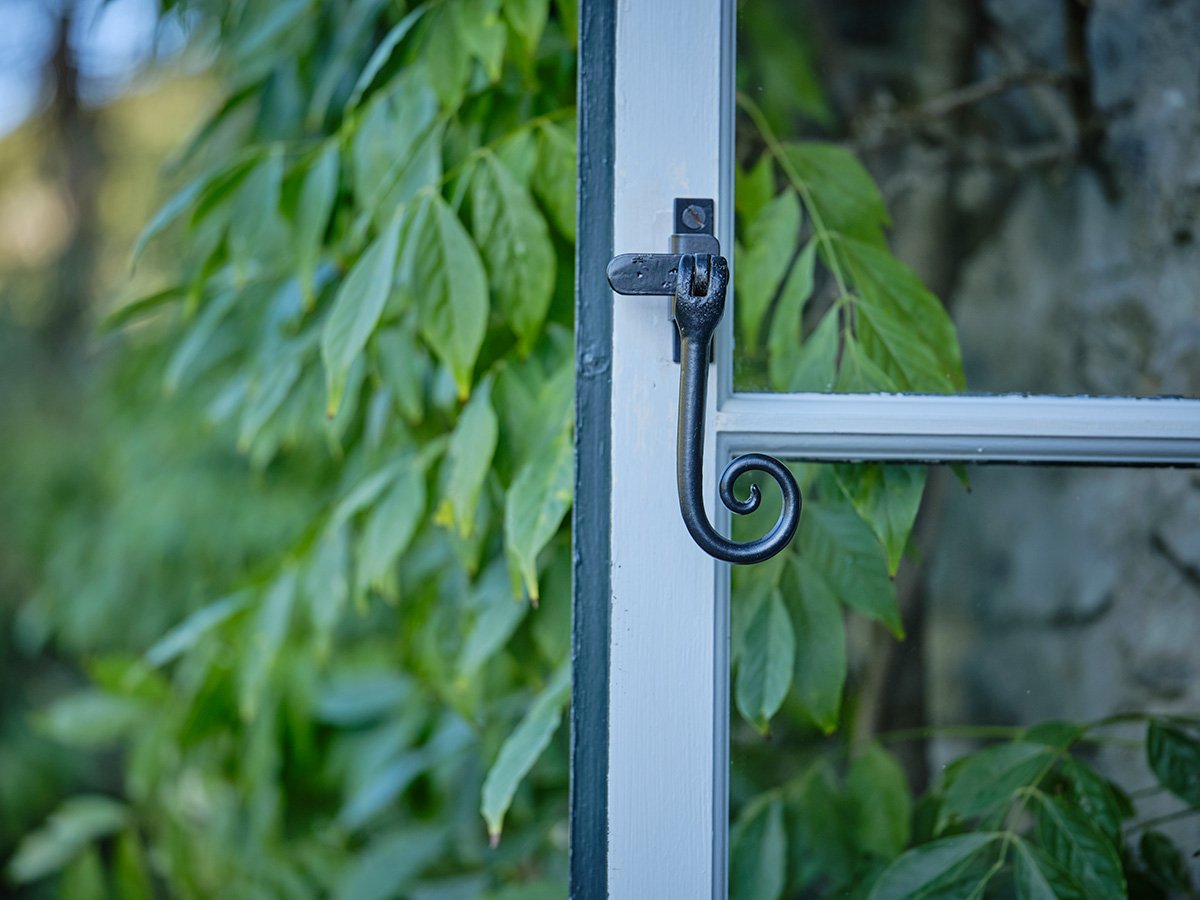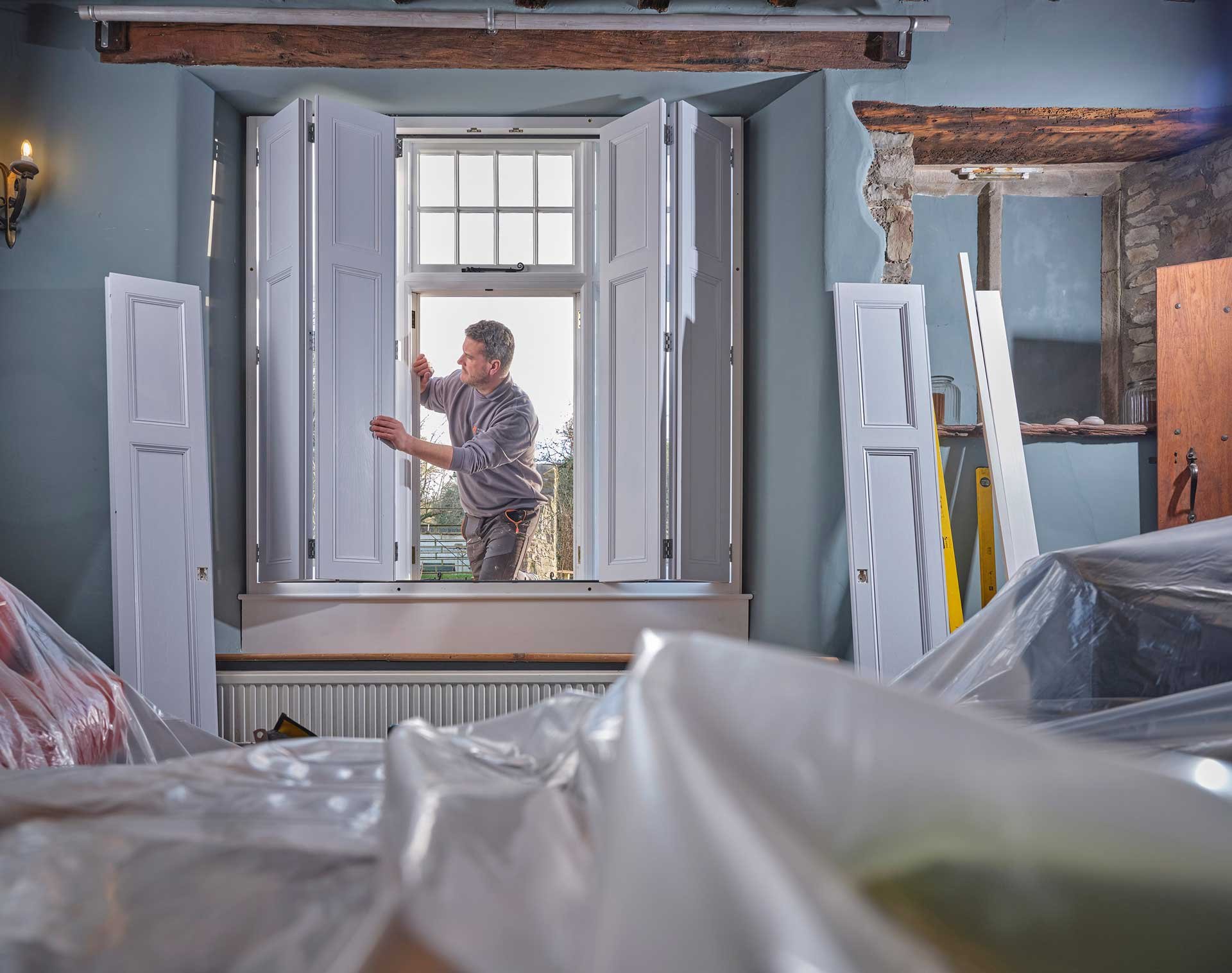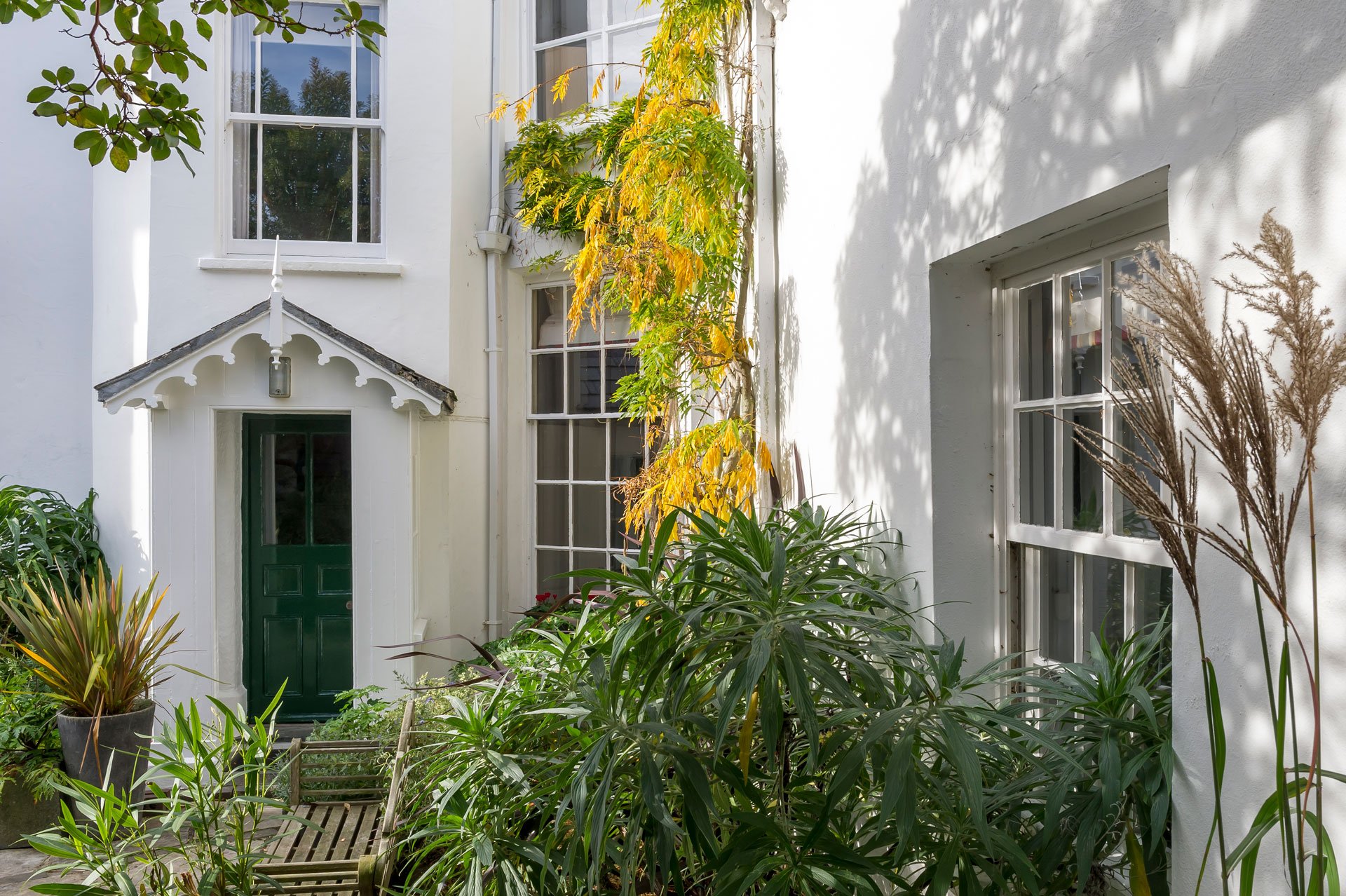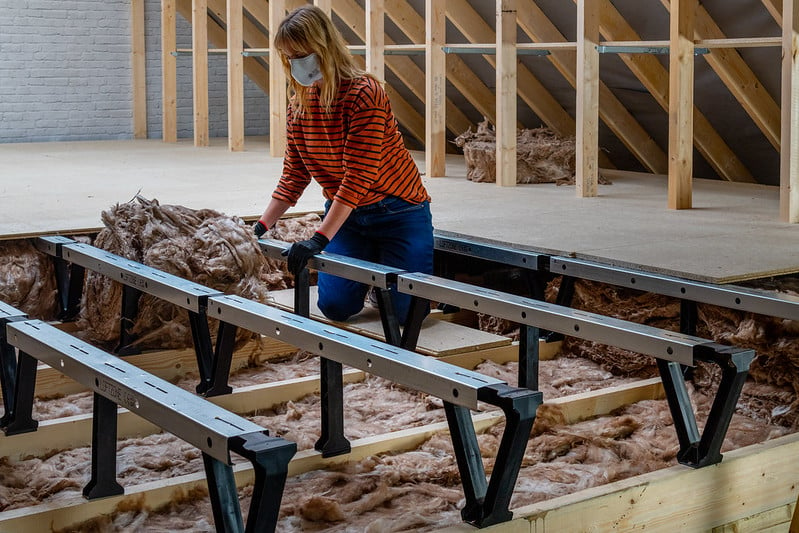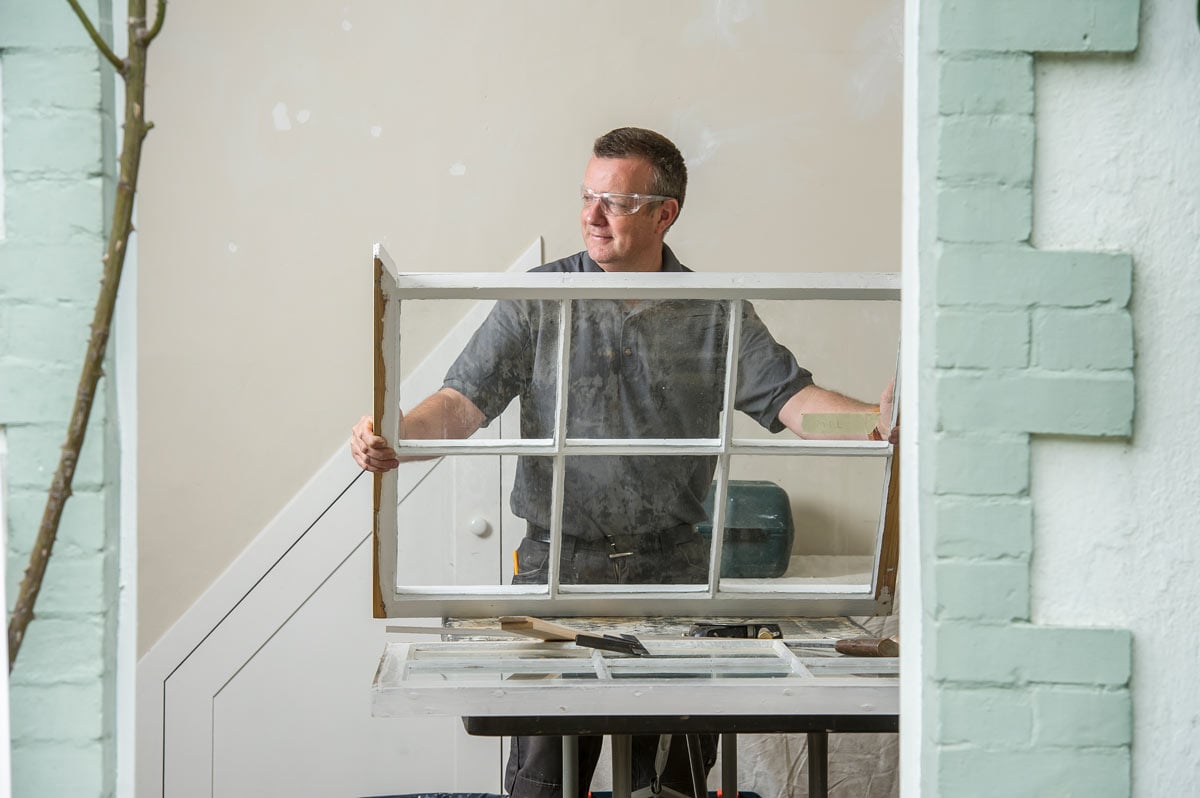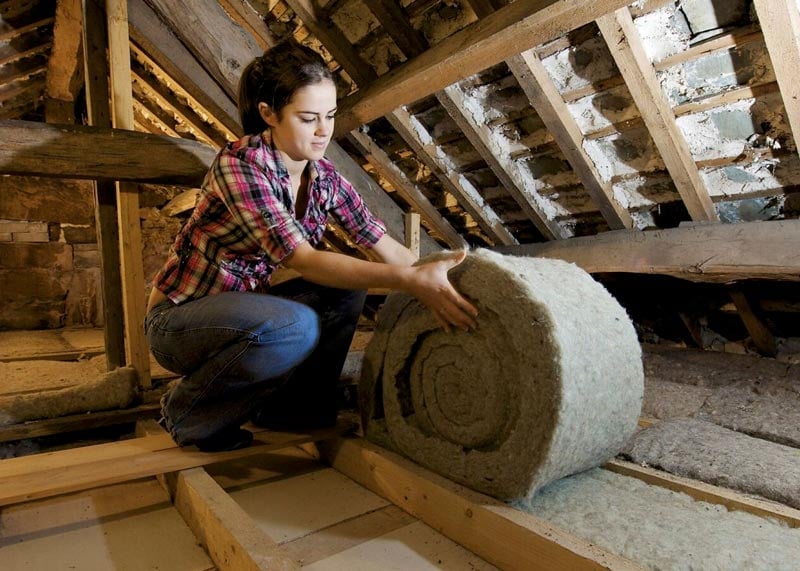We take our commitment to the planet seriously. One of the founding principles of Mitchell & Dickinson is our pledge to cut carbon. This extends to every area of our business.
Our impact
The carbon savings that result from our work are 50 times greater than our carbon footprint. In other words, Mitchell & Dickinson is more than carbon neutral – we are significantly carbon negative.
Over 100,000 tonnes of CO2e have been saved since Mitchell & Dickinson started insulating homes. That’s the equivalent of taking 50,000 petrol cars off the road for a year or the annual CO2 draw-down of almost 40 million trees.
Carbon
From the start, Mitchell & Dickinson has aimed to be an eco-business, with the environment at the heart of what we do.
Carbon is one of the five Cs that make up the core of our business model
Comfort | Cost | Conservation | Craftsmanship | Climate
We apply exceptional craftsmanship to the conservation of period and listed buildings to make them more comfortable to live in and more cost-efficient to run. The result is a significant reduction in carbon emissions as less energy is required to keep your home warm.
Our carbon usage in 2022-23
Our carbon footprint follows the GHG Protocol, includes Scope 1-3 emissions and is independently verified every three years. Based on the report for the year ending 31 March 2022, verified by Go Climate Positive, our carbon data for the year ending 31 March 2023 was:
Carbon footprint
465 tonnes
Carbon savings
24,169 tonnes
Targets
Despite already being carbon negative, Mitchell and Dickinson is committed to reducing our carbon footprint in proportion to our turnover. We have set the following carbon reduction targets until 2030, relative to the base date of 2022, based on SBTI guidelines for 1.5°C temperature rise:
- Scope 1 and 2: 4.2% reduction in absolute carbon emissions each year referenced to baseline, as an annual linear reduction target, and based on location-based emissions for Scope 2.
- Scope 3: 7% year-on-year reduction of intensity ratio tCO2e/£M revenue.
How do we achieve this?
The majority of Scope 1 emissions are from our vans and cars for installation teams and surveyors. We are switching to electric cars, with the vans to follow. Current fuel emissions are all offset using a carbon-negative business travel service.
Scope 2 emissions are a very small part of our total emissions and all office, storage and operational spaces use renewable energy sources.
Scope 3 emissions make up approximately three-quarters of our total footprint, and are dominated by the purchase of materials and travel and accommodation.
The environmental impact of these materials varies and is addressed in the Materials section below. Where it is high we are looking to reduce usage, test alternatives and work with our supply chain to lower impact.
As we grow, we are setting up more regional hubs. Our teams will therefore have smaller distances to travel and require fewer hotel stays as we establish more hubs.
Materials
Materials include tools, timber, hardware, insulation (e.g. plexiglass, PIR board, sheep wool) and filling and finishing products (e.g. resins, putties, paints).
The top five materials (by CO2e embodied carbon) are:
- Plexiglass: half the embodied carbon of glass; not intrinsically eco-friendly but unbreakable and long-lasting; recyclable at end of life
- Ironmongery: high embodied carbon, but long lifespan and recyclable
- Lead: high embodied carbon, but long lifespan and recyclable
- Magnetic Tape: not recyclable or biodegradable but low embodied carbon; low toxicity; long lifespan; small relative quantities
- Timber: Ultra-low embodied carbon; certified and traceable (PEFC and FSC) sustainably-grown, certified and traceable; high transport energy but durable & long lifespan; recyclable and biodegradable
We use fully-certified virgin timber for strength and durability; for consistency with the existing timber fabric of windows and doors and their conservation setting
Suppliers
We endeavour to work only with responsible suppliers who share our values. We request certification and accreditation information where appropriate and aim to build strong relationships with suppliers so that we can enable best practice together. Our business is conducted in a responsible, ethical and sustainable manner and we expect the same standards in the supply chain.
As an eco-company on an eco mission our approach to waste and recycling is central to our practice. We operate a hierarchical policy on waste and recycling: Prevent, Reuse, Recycle, Disposal
In the first instance, we seek to prevent waste from being produced from our activities as far as possible.
We have our main parts and materials made to fit our bespoke projects thus avoiding large quantities of waste products being generated. We work with our suppliers to minimize waste materials, and our office processes are as paperless as possible.
Where waste is unavoidably generated from our work we reuse as much as possible. Waste generated on projects is returned to our regional units, where it is collected and returned to our central stock for reuse. It is either kept or donated to individuals and organisations for things like art projects and used on allotments or sold for reuse by others.
Waste which cannot be reused is recycled. We have designated recycling bins provided by our recycling contractor and waste is sorted accordingly and collected each week.
We dispose of waste only where it cannot be reused or recycled. Products which are environmentally harmful, such as paints or resins or materials such as lead are disposed of responsibly according to manufacturers’ instructions.

Company Family
From the very start, Mitchell & Dickinson founded its business in the interests of people, planet, and profit in that order and continues to work for this ‘triple bottom line’. We refer to our employees as our Company Family.
All of our team – from surveyors and project managers to apprentice craftsmen – are employed directly by Mitchell & Dickinson. We don’t use contractors. Every member of the team is trained in-house to ensure they meet our high standards, and each one is a skilled expert in their field.
We want our Company Family to be fulfilled, to enjoy their work, to feel proud to be part of the family and to feel respected, listened to, cared for, valued and included. Training, career journey planning, mentoring, support and the opportunity to be heard are essential ingredients to help us keep everyone happy and healthy.
Carbon literacy and impact awareness
We regularly update our Company Family on the impact of our work including carbon savings and footprint alongside finances and growth. As specialists in insulating Britain’s older housing stock, energy and carbon saving is at the heart of our business, indeed it is our sole mission. It’s why we exist and we are always looking for ways to communicate and embed this further.
Corporate social responsibility
We promote and support relevant community events and initiatives, including:
Funding non-profits
Carbon Savvy is an online educational platform using carbon and happiness calculators on all aspects of low-carbon living and how consumers and homeowners can minimise their carbon footprint.
Energy efficiency events
We support, attend and sponsor the following: Green Open Homes Bath and NE Somerset, Great Big Green Week, Energy Wise Totnes, Tavistock Energy Fest, 361 Energy, and the Listed Property Shows.
Schools and careers
We participate in the Bideford College and Great Torrington School careers events to help school leavers understand the careers available to them in insulation and carpentry, locally and further afield. We sponsor Woolsery School’s annual festive production.
Community events
We sponsor the environmental author book talk at the Appledore Book Festival, the Artmakers New Atlantic Wave art shows in Bideford, Northam May Fair and carnival, The Woolsery Show where we are judges for the most sustainable business award and we are annual sponsors of Instow Cricket Club. We have historically also sponsored eco-art prizes at The Burton Art Gallery to support the promotion of the climate change message through professional art.
We are, in addition, members of influencing bodies with whom we are actively engaged such as the Energy Efficiency Association, the Country Landowners Association and Constructionline.
